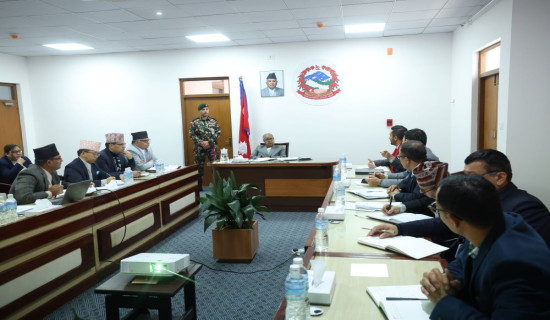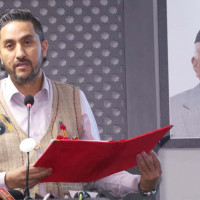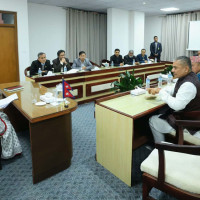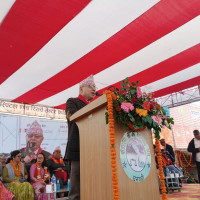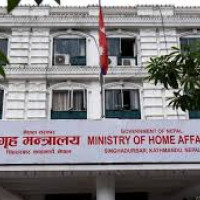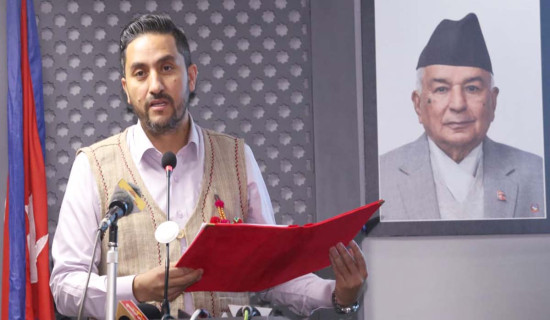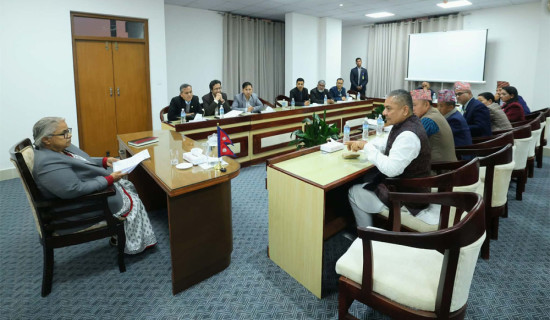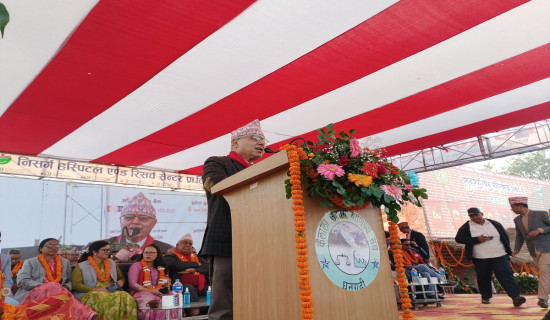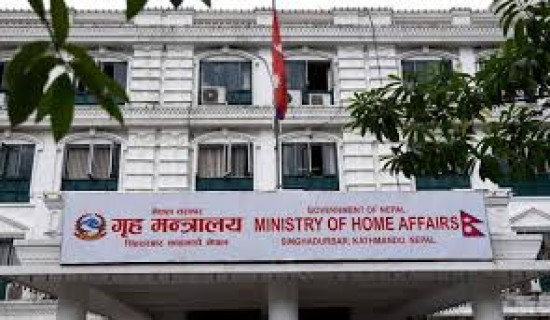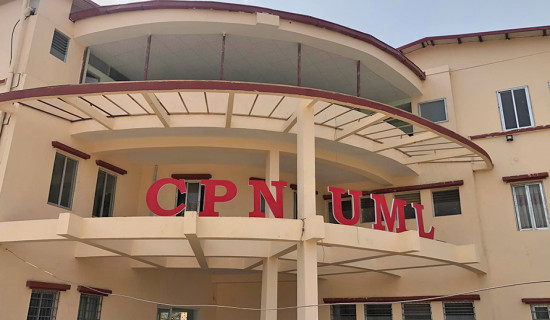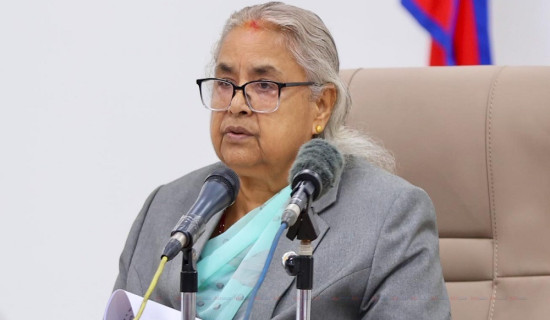- Tuesday, 9 December 2025
Vulture from Kawasoti flies 600 km to Lamkichuha via India
By Bomlal Giri
Nawalpur, Aug. 7: A Slender-billed Vulture, which is called ‘sano khairo giddha in Nepali’, that flew from Kawasoti in Nawalpur has travelled around 600 kilometres, passing through India’s Uttar Pradesh, to reach Lamkichuha in Kailali.
Field officer Ishwari Chaudhary from Bird Conservation Nepal (BCN) confirmed this based on tracking data.
The vulture had flown from the Jatayu Restaurant in Kawasoti on July 11 and reached Gaidahawa Lake in Rupandehi, where it stayed for a few days to rest. Then it flew via Bardaghat and Pokhara to Uttar Pradesh in India, where it again stayed for four to five days before finally arriving in Lamkichuha, said DB Chaudhary, a bird expert and chairperson of the Jatayu Restaurant Management Committee.
According to him, this vulture was tagged in 2023 at the Jatayu Restaurant located in the Model Buffer Zone Community Forest in Kawasoti-13. The bird was identified by its red satellite tag labelled ‘J16’ attached to its leg.
This vulture regularly flew around places like Lumbini, Pokhara and Dang. “On the first day, it flew from Kawasoti to the vulture restaurant near Gaidahawa Lake in Rupandehi, rested there for a few days, then reached Uttar Pradesh, and after a few more days, arrived in Lamkichuha,” said Chaudhary.
Currently, the vulture is said to be unwell due to continuous rainfall. “It got sick from flying long distances in the rain. A vet team from the National Trust for Nature Conservation (NTNC) in Bardiya is treating it at the Division Forest Office in Kailali,” Chaudhary said. “After the initial treatment, we plan to bring it back to Kawasoti for further care,” he said.
The vulture was rescued with the help of locals on Sunday and is being kept at the Sub-Division Forest Office in Lamkichuha. A health check-up was done on Tuesday. The bird is weak but has no visible injuries.
According to NTNC veterinarian Bikalp Karki, the vulture seems weak due to being drenched in rain and flying such a long distance. “There are no injuries, but the bird appears weak due to the journey and being wet. It also lacks food, water and possibly blood,” said Dr. Karki. “We will keep it at the forest office for three days for treatment. If it recovers, we might release it and see if it returns to Nawalpur on its own. If not, it will need more treatment.”
To study the movement of vultures, 169 vultures of White-rumped Vulture and slender-billed species have been fitted with satellite tags at Kawasoti’s Jatayu Restaurant. These tags were attached to the back of the vultures with permission from the Department of National Parks and Wildlife Conservation.
Each satellite tag weighs 60 grams and costs around Rs. 200,000 to Rs. 300,000. They send data every two hours, including the bird’s direction, speed and altitude, said Field Officer Chaudhary.
The tags are solar-powered and last three to five years. They provide details such as battery status and whether the tag is functioning, which makes it easier to study vulture movement, he added.



